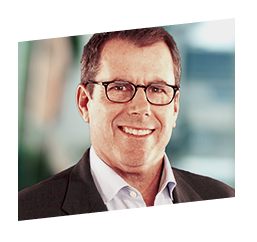
The Fourth Industrial Revolution of Investing – The New Asset Class
Recorded June 24, 2021

John Forlines III
Chief Investment Officer | Portfolio Manager

Bob Shea
Chief Executive Officer | Chief Investment Officer
TrimTabs Asset Management
Disclosures
Before investing you should carefully consider the Fund’s investment objectives, risks, charges and expenses. This and other information is in the statutory and summary prospectuses, a copy of which may be obtained by visiting the Fund’s website at www.trimtabsfunds.com/ttac, www.trimtabsfunds.com/ttai, www.trimtabsfunds.com/dfhy, www.trimtabsfunds.com/dfnv. Please read the prospectus carefully before you invest.
Quasar Distributors, LLC
There is no guarantee that TTAC will achieve its investment objective. Investing involves risk, including the possible loss of principal. Because the Fund is an ETF (rather than a mutual fund), shares are bought and sold at market price (not NAV), may trade at a discount or premium to NAV, and are not individually redeemable. Owners of the shares may acquire those shares from the Fund and tender those shares for redemption to the Fund in Creation Unit aggregations only, consisting of 25,000 shares. Brokerage commissions will reduce returns. Investments in the Fund include risks associated with small-and mid-cap securities, which involve limited liquidity and greater volatility than large-cap securities. The evaluation of ESG ratings may affect the Fund’s exposure to certain issuers or industries and may not work as intended. There is no guarantee that screening the Fund’s portfolio or individual securities based on their ESG ratings will increase the Fund’s performance.
The Russell 3000® Index measures the performance of the 3,000 largest publicly traded U.S. companies, based on market capitalization. The Index measures the performance of approximately 98% of the total market capitalization of the publicly traded U.S. equity market. It is not possible to invest directly in an index.
ESG disclosure:
Morningstar Sustainability Rating disclosure information:
As of 3/31/21, TTAC had a Morningstar sustainability ranking of 5 globes and ranked in the top 1% based on 99.34% of AUM out of a universe of 1,559 US Equity Mid Cap funds.
Please click here to see current rankings.
As of 3/31/21, TTAI had a Morningstar sustainability ranking of 4 globes based on 99.34% of AUM out of a universe 6,940 Global Equity Large Cap.
Please click here to see current rankings.
The Morningstar Sustainability Rating™ is intended to measure how well the issuing companies of the securities within a fund’s portfolio holdings are managing their financially material environmental, social and governance, or ESG, risks relative to the fund’s Morningstar Global Category peers.
The Morningstar Sustainability Rating calculation is a five‐step process. First, each fund with at least 67% of assets covered by a company level ESG Risk Score from Sustainalytics receives a Morningstar Portfolio Sustainability Score. The Morningstar Portfolio Sustainability Score is an asset‐weighted average of company‐level ESG Risk Scores. The Portfolio Sustainability Score ranges between 0 to 100, with a higher score indicating that a fund has, on average, more of its assets invested in companies with high ESG Risk. Second, the Historical Sustainability Score is an exponential weighted moving average of the Portfolio Sustainability Scores over the past 12 months. The process rescales the current Portfolio Sustainability Score to reflect the consistency of the scores. The Historical Sustainability Score ranges between 0 to 100, with a higher score indicating that a fund has, on average, more of its assets invested in companies with high ESG Risk, on a consistent historical basis. Third, the Morningstar Sustainability Rating is then assigned to all scored funds within Morningstar Global Categories in which at least thirty (30) funds receive a Historical Sustainability Score and is determined by each fund’s Morningstar Sustainability Rating Score rank within the following distribution:
- High (highest 10%)
- Above Average (next 22.5%)
- Average (next 35%)
- Below Average (next 22.5%)
- Low (lowest 10%)
Fourth, then Morningstar applies a 1% rating buffer from the previous month to increase rating stability. This means a fund must move 1% beyond the rating breakpoint to change ratings. Fifth, they adjust downward positive Sustainability Ratings to funds with high ESG Risk scores. The logic is as follows:
- If Portfolio Sustainability score is above 40, then the fund receives a Low Sustainability Rating.
- If Portfolio Sustainability score is above 35 and preliminary rating is Average or better, then the fund is downgraded to Below Average.
- If the Portfolio Sustainability score is above 30 and preliminary rating is Above Average, then the fund is downgraded to Average.
- If the Portfolio Sustainability score is below 30, then no adjustment is made.
The Morningstar Sustainability Rating is depicted by globe icons where High equals 5 globes and Low equals 1 globe. Since a Sustainability Rating is assigned to all funds that meet the above criteria, the rating it is not limited to funds with explicit sustainable or responsible investment mandates.
Morningstar updates its Sustainability Ratings monthly. The Portfolio Sustainability Score is calculated when Morningstar receives a new portfolio. Then, the Historical Sustainability Score and the Sustainability Rating is calculated one month and six business days after the reported as‐of date of the most recent portfolio. As part of the evaluation process, Morningstar uses Sustainalytics’ ESG scores from the same month as the portfolio as‐of date. Please visit http://corporate1.morningstar.com/SustainableInvesting/ for more detailed information about the Morningstar Sustainability Rating methodology and calculation frequency. Sustainalytics is an independent ESG and corporate governance research, ratings, and analysis firm. Morningstar, Inc. holds a noncontrolling ownership interest in Sustainalytics.
©2020 Morningstar. All Rights Reserved. The information contained herein: (1) is proprietary to Morningstar and/or its content providers; (2) may not be copied or distributed; and (3) is not warranted to be accurate, complete or timely. Neither Morningstar nor its content providers are responsible for any damages or losses arising from any use of this information. Past performance is no guarantee of future results.
GAAP earnings are a common set of standards accepted and used by companies and their accounting departments.
Free Cash Flow (FCF) represents the cash that a company is able to generate after accounting for capital expenditures.
Alpha is a measure of the active return on an investment, the performance of that investment compared with a suitable market index.
R&D stands for research and development.
Get in touch with us
Donoghue Forlines (previously W.E. Donoghue) is a Boston-based tactical investment firm that has specialized in active risk-managed portfolios since 1986. We offer a full suite of proactive strategies designed to help advisors and their clients de-risk when market circumstances warrant it, enabling them to stay disciplined to meet their investment objectives. Learn More.
Client Relationship Summary
Main Offices
One International Place
Suite 310
Boston, MA 02110
800.642.4276
Research
63 Forest Avenue
Suite 1
Locust Valley, NY 11560
Copyright Donoghue Forlines LLC | Website by GSM Marketing






